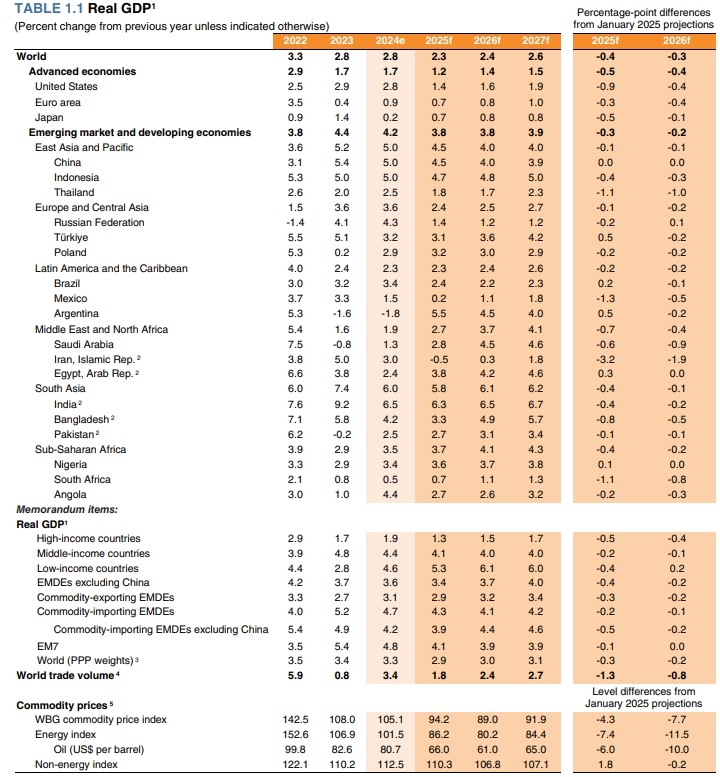TradingKey - Following the International Monetary Fund (IMF) and the Organisation for Economic Co-operation and Development (OECD), the World Bank has now also downgraded its forecast for global economic growth in 2025, warning that the 2020s may become the slowest-growing decade since the 1960s.
On Tuesday, June 10, the World Bank released its latest economic outlook report, projecting global GDP growth of 2.3% for 2025, a downward revision of 0.4 percentage points from its January forecast. The main culprit is the escalating trade tensions driven by Trump tariffs, which are undermining investor confidence and dampening private consumption.
Globally, around two-thirds of countries have seen their growth forecasts revised downward compared to earlier projections.

World Bank Global Growth Forecast, Source: World Bank
In this biannual publication, the World Bank also cut growth forecasts for Japan, Europe, and the United States, citing rising policy uncertainty and mounting trade barriers.
The report highlighted that the global economic environment is becoming increasingly challenging amid heightened uncertainty and increasing trade restrictions. With the potential for rapid shifts in trade policies, more disruptions to market sentiment are likely ahead.
However, the World Bank did not revise down China's growth forecast, noting that China's financial system remains resilient enough to withstand significant headwinds from external uncertainties.
The institution warned that if the U.S. continues to raise tariffs, global economic growth could slow further, while inflationary pressures might rise.
OECD and IMF Also Lower Forecasts Due to Trade Tensions
This move by the World Bank follows similar actions by two other major international institutions.
In early June, the OECD lowered its global growth forecast for 2025 from 3.1% to 2.9%, citing concerns over U.S. protectionist trade policies and slowing demand.
In April, the IMF slashed its 2025 global growth outlook by 0.5 percentage points to 2.8%, with the U.S. growth forecast cut by 0.9 percentage points to 1.8% — the largest downward revision among advanced economies. The IMF cited rising policy uncertainty, intensifying trade tensions, and weakening demand as key reasons.
Find out more